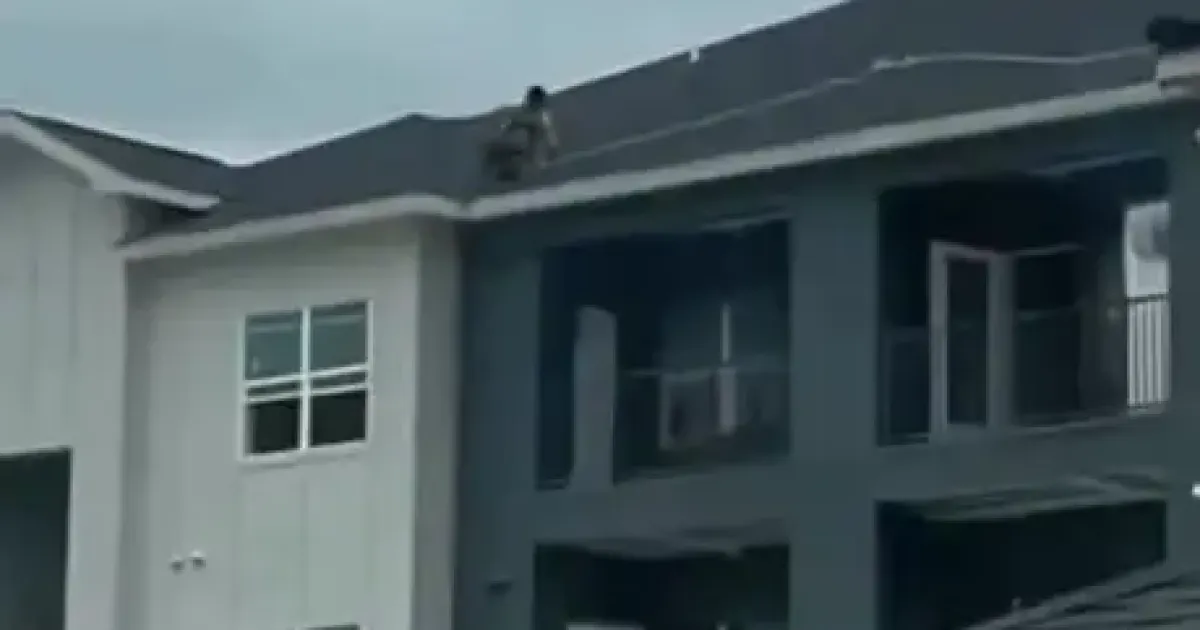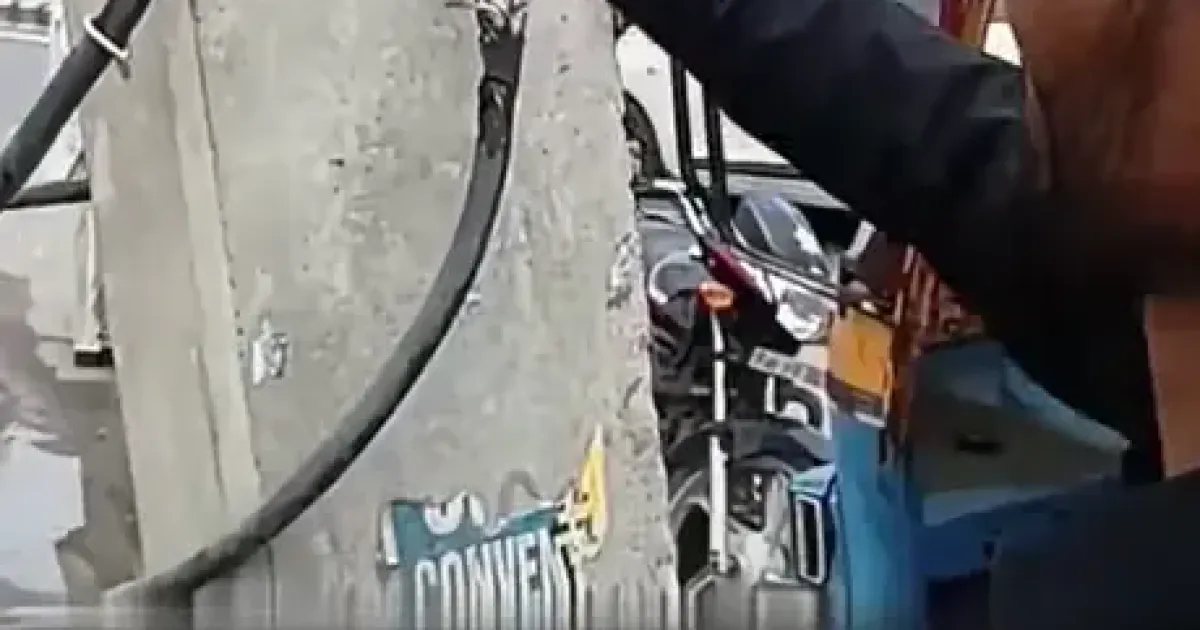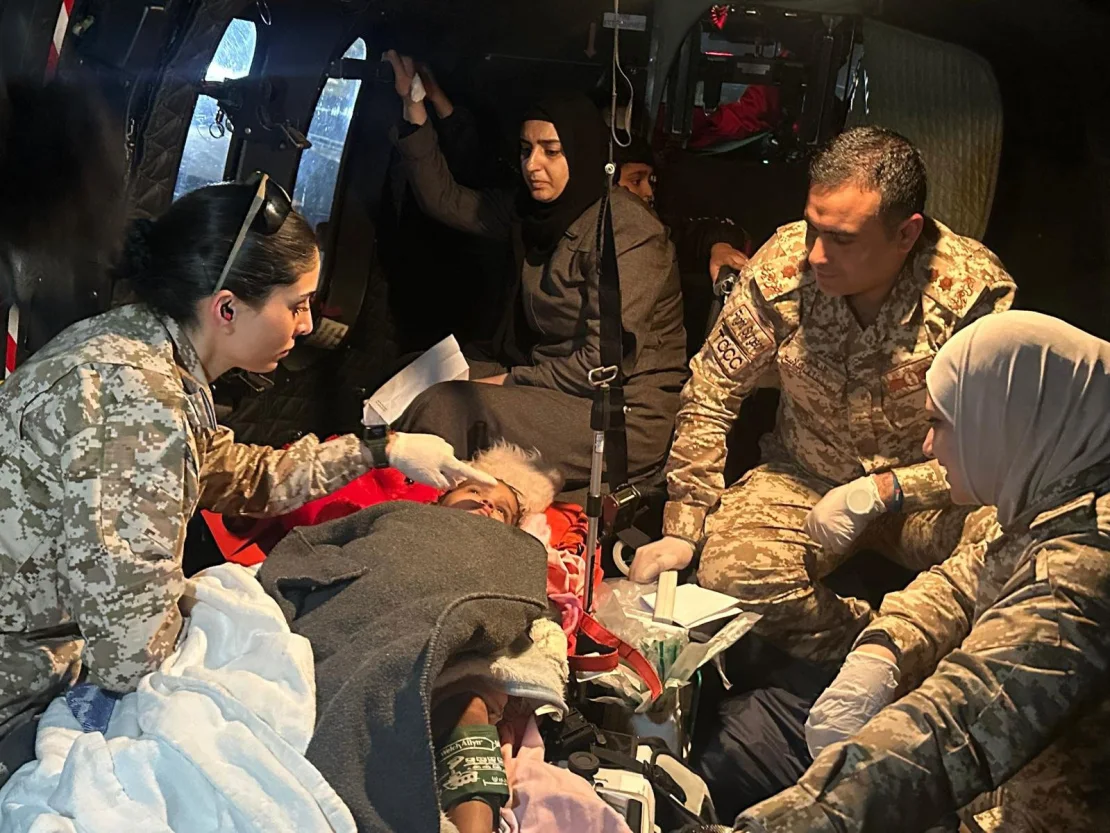
Toddler who has just days to live evacuated from Gaza for urgent medical care
A Palestinian toddler forced to wait weeks for permission to leave Gaza for life saving medical treatment has finally arrived in Jordan. The girl is now in hospital receiving critical medical treatment.
Two-year-old Habiba al-Askari left the besieged Palestinian enclave after a mammoth effort at the “highest level” in Amman, a Jordanian official familiar with the negotiations told CNN. Jordan decided to evacuate her following a CNN report on her story.
Israel initially approved Habiba’s treatment abroad last month, before it denied authorization for medical evacuations for more than two weeks, according to international aid groups.
Doctors believe Habiba has protein C deficiency – a rare but highly treatable genetic condition, which causes excessive blood clotting – and warned that the child will likely lose her right leg and possibly arms.
But thousands of children like Habiba cannot access life-saving care in Gaza, where more than 15 months of Israel’s siege and bombardment has paralyzed the medical system.
Following a CNN report on Habiba last month, Jordan decided to evacuate her to Amman for urgent medical treatment. Israel then delayed the mission, Jordanian officials told CNN last week. Israeli authorities did not respond to CNN’s repeated requests for comment at the time.
On Thursday, Habiba was admitted into intensive care in Gaza’s Nasser Hospital with a lung infection. Her heart stopped twice, according to her mother and health workers who resuscitated her. On Sunday, Israel further delayed clearing the evacuation – postponing the urgent mission and refusing to allow her mother Rana to accompany her daughter.
In CNN video from the hospital over the weekend, Rana, 37, sobbed and embraced her daughter at her bedside. In one scene, Habiba, who is too young to understand her mother’s pain, leaned over and kissed her mother on the cheeks.
“Oh Lord I pray to you for a miracle, but if this is your will, I will accept it,” Rana cried before collapsing to the floor. Habiba, sitting up in her bed, stared quietly at the nurses who rushed to pick up her mother.
Jordanian officials worked behind the scenes to obtain Israeli approval for Rana to escort Habiba and the girl’s brother Soheib.
To spare Habiba a long and perilous journey, Jordan had requested an airlift by its military from the Israel-Gaza border, but Israel denied that request, according to a senior Jordanian official, who told CNN Israeli authorities would only approve a land movement.
On Sunday, Israel then authorized Soheib’s journey – before revoking its permission at the last minute, according to Jordanian officials. The official told CNN that they finally obtained approval for the whole family to leave Gaza early Monday.
The senior official described the mission to evacuate Habiba as unnecessarily difficult. “We worked relentlessly, daily, to get Habiba out. It was followed at the highest levels in Jordan,” the official said.
COGAT, the Israeli aid agency, told CNN on Monday: “Israel has approved Habiba Mahmoud Abd al-Nasser Askari’s departure to Jordan for medical treatment, accompanied by her mother and her 10-year-old brother.”
Approvals for the departure of children and their family members for medical treatment were “subject to a security review by relevant authorities before their entry into Israel’s sovereign territory,” COGAT said on January 14.
Israel’s military campaign since the Hamas-led October 7, 2023, attacks has erased entire families, spawned starvation and disease, and decimated medical infrastructure in Gaza. After a fragile ceasefire and hostage release deal between Israel and Hamas materialized on January 19, Palestinians say they are struggling to reconcile the psychological trauma and physical destruction wrought by more than a year of war.
‘The stakes are a child’s life’
On Monday, the toddler and her family were first transferred in an ambulance by Gaza’s health ministry to the Kerem Shalom border crossing with Israel and handed over to a Jordanian medical team.
Habiba was then taken through Israel and into Jordan via the King Hussein Bridge, also known as the Allenby Bridge crossing, where a medical team dispatched at the order of King Abdullah II was waiting in a helicopter to take her to a hospital in Amman.
A CNN team on the ground at the Jordanian side of the border heard sirens and saw blue and red ambulance lights illuminating a path leading to the helicopter. Three military medics met Rana and her two children inside the emergency vehicle Monday evening before the family were transferred into the chopper. The toddler lay swaddled in a blanket with a red fluffy toy as Rana gazed out the window, her eyes weary with exhaustion after her first time leaving Gaza.
Military medics monitored Habiba’s oxygen levels throughout the ten-minute flight to Amman before they arrived at the Queen Rania Al Abdullah Hospital for Children. Habiba was then seen to by medical workers at the facility. Habiba lay in bed and beamed up at her older brother.
COGAT previously told CNN that it has enabled 24 medical evacuations from Gaza through Israel to other countries “in recent months,” for 1,075 Gaza residents seeking medical care. Between 12,000 to 14,000 people still require medical evacuation from Gaza, according to the World Health Organization.
At least 37 patients and 39 companions left Gaza from Rafah, WHO said on Saturday, after the crossing re-opened.
Like Habiba, 2,500 other children in Gaza require urgent medical evacuation, according to the UN. But for those waiting for a lifeline, there is no such promise, according to a humanitarian worker in the region.
Arwa Damon, the founder of the relief organization INARA, told CNN that Israel’s process for facilitating children’s medical evacuations from Gaza is “never clear.” INARA was not involved in Habiba’s evacuation mission.
“It’s like trying to navigate a twisted reality TV show… where the rules for survival are… constantly shifting and the stakes are a child’s life,” Damon said Monday. “What we have faced trying to get Habiba out is not unique to her, it’s the status quo.”
Read More...
10 months ago
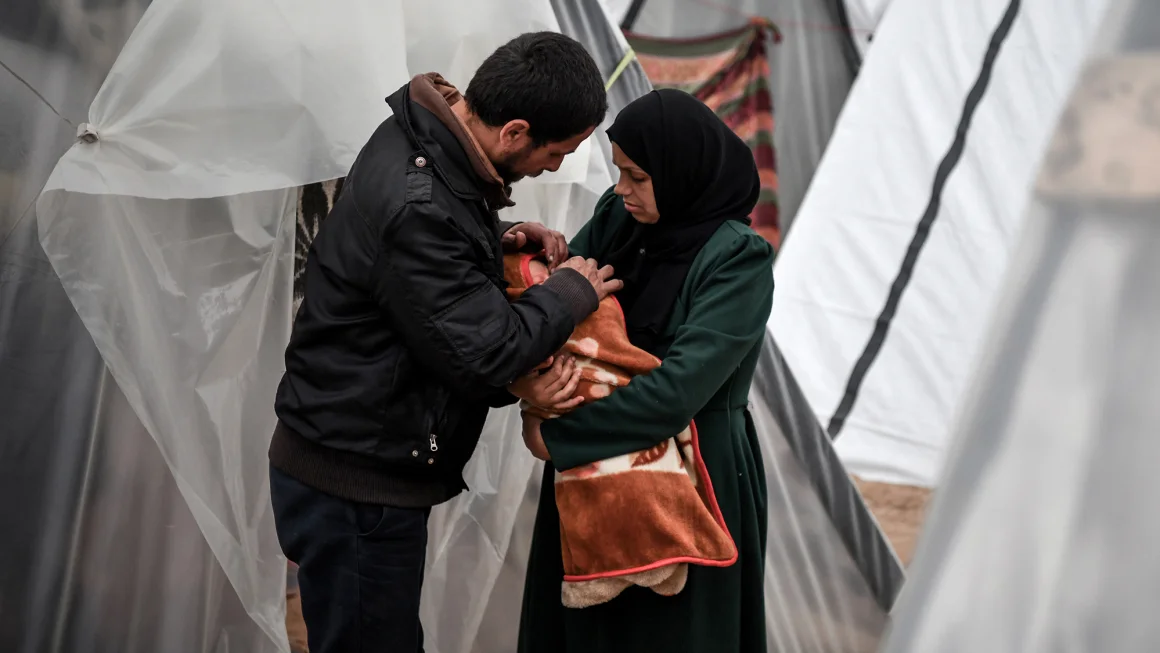
Israel’s war inflicted ‘life-threatening danger’ on pregnant women and girls in Gaza, Human Rights Watch says
Israel has inflicted “serious and sometimes life-threatening danger” on pregnant and postpartum women and girls in Gaza over 15 months of bombardment and siege, according to a new Human Rights Watch report.
The 50-page report, “‘Five Babies in One Incubator’: Violations of Pregnant Women’s Rights Amid Israel’s Assault on Gaza,” was published by the US-based advocacy group on Tuesday.
It details attacks on medical facilities and healthcare workers in Gaza that “directly harmed women and girls during pregnancy, childbirth, and the postpartum period” and says the war has increased the risk of miscarriage, preterm birth, stillbirth, postpartum hemorrhage and underweight newborns.
HRW accused Israel of enforcing an unlawful blockade, a near-total ban on water, food and electricity, starvation as a method of war, attacks on the medical system, and repeated forcible transfer – violating the right to follow-up and postnatal care for pregnant women and girls, and their children.
Israel is “obligated to use all the resources at its disposal to ensure that everyone in Gaza, including pregnant women and girls and their children, are able to enjoy their human right to health,” the report said. “This includes ensuring the full restoration of Gaza’s healthcare system so that all patients, including pregnant women and babies, have access to quality medical care.”
HRW repeated allegations that Israel is committing genocide against Palestinians in Gaza, which Israel strongly denies. Israel has also been taken to the UN’s top court, the International Court of Justice, on allegations of genocide.
CNN has reached out to the Israeli military and COGAT, the Israeli aid agency, for comment.
Responding to a question about Israeli attacks on medical facilities and health care workers in Gaza, the Israel Defense Forces (IDF) repeated allegations that Hamas uses hospitals for its military operations. Hamas denies using hospitals as cover. CNN cannot independently verify either claim.
COGAT denied blocking relief, delaying the entry of fuel, or limiting the number of humanitarian teams that can go into Gaza, in a statement to CNN.
About 66,474 aid trucks have entered the strip, the agency said. More than 11,000 requests for humanitarian coordination across Gaza were approved, COGAT added. Since October 7, more than 30,460 tons of medical equipment have been transferred, over 53,040 tons of water have been transported through crossings, according to COGAT. The agency said it had facilitated the entry of over 1,300 doctors and humanitarian teams entering and exiting Gaza.
Israel’s onslaught since the Hamas-led October 7 attacks has wiped out entire families, decimated the medical system, and supplies, spawning starvation, disease and displacement.
At least 47,306 Palestinians have been killed in Gaza, according to the Ministry of Health there. Of those, 12,316 were women and another 808 were babies under aged one, Gaza’s Government Media Office (GMO) reported on January 24. Although a fragile ceasefire began last week, the survival challenges facing new and expecting mothers in the enclave remains dire.
Babies dying ‘in front of us’
More than 1,054 health workers and medical professionals have been killed, including at least six pediatricians and five obstetrician-gynecologists, HRW said, citing the health ministry in Gaza.
As of January, emergency obstetric and newborn care is available at seven out of 18 partially functioning hospitals in Gaza, four out of 11 field hospitals, and one community health center, according to HRW.
The rate of miscarriage in Gaza has increased by 300% since October 7, 2023, the International Planned Parenthood Federation said in July. Two Palestinian women told HRW their fetuses died after they were injured by explosive weapons attacks that also killed their partners.
Even for those who make it to a medical facility, hospitals offer little respite. Women can be “rushed out” within hours of childbirth because staff are overwhelmed by scores of patients injured by bombardment, according to HRW.
Mayas Sufyan Musa, 25, told CNN that when she journeyed on foot to Al-Emirati Hospital, in Rafah, to give birth to her daughter, Maria, on February 27, she was startled by crowds of desperate Palestinians seeking refuge.
“I did not get complete and sufficient privacy during my birth. I was very afraid of bleeding,” said Musa. “I faced great difficulty in giving birth due to fear of the shelling next to the hospital.
“My husband was informed that I had to leave immediately … It was a very difficult moment, and the cleanliness in the hospital was non-existent.”
For pregnant women in Gaza, the stress of trying to survive attacks coupled with food and water shortages could weaken the immune system, harm the fetus, and lead to preterm birth, HRW said. Dr Adnan Radi, a medic at Al Awda Hospital, in northern Gaza, told the agency that most of the babies delivered by staff have severely low birthweight and are dying of perinatal asphyxia.
“We try to intubate the babies. Sometimes it has helped, but the picture is very gloomy,” Dr. Radi said in the HRW report, adding that “in the last month I can remember more than six babies with low birthweight dying in front of me.”
Meanwhile, shortages of antibacterial materials can increase the risk of sepsis, pneumonia, and meningitis among newborns, Maram Al Shurafa, an aid worker for the NGO, Medical Aid for Palestinians (MAP) in Gaza, told CNN.
‘I started begging that God would take the baby’
In sprawling displacement camps, parents say they cannot find enough food, clean water, warmth or sanitation facilities. Instead, caregivers resort to feeding babies with infant formula made from dirty water, compounding the risk of dehydration, hepatitis A and skin infections according to HRW.
Pregnant and breastfeeding women sharing toilets in crowded spaces are especially vulnerable to infections including UTIs, which can lead to preterm labor, low birth weight, and stillbirths, according to Al Shurafa, a program officer for MAP.
“Women may feel uncomfortable or self-conscious breastfeeding in such conditions,” said Al Shurafa. “This lack of privacy can lead to stress and anxiety, which in turn affects the mother’s ability to relax and establish a successful breastfeeding routine.”
More than 48,000 pregnant women are experiencing emergency or catastrophic food insecurity, the UN’s reproductive rights agency said in December.
At least 56 children have starved to death, according to Zahir Al-Wahidi, the director of Information Systems at Gaza’s health ministry. Eight infants and newborns have reportedly died from hypothermia, the UN’s children’s agency said in January.
Musa, who is displaced in Deir al-Balah, central Gaza, told CNN that baby Maria, is malnourished.
“The severity and ferocity of the suffering was concentrated in physical displacement,” she said. “I was afraid that we would be exposed to direct shelling or missile fragments, and from the rain and cold and the flooding of the tents.”
Israa Mazen Diab al-Ghul, 30, a pregnant woman displaced in Nuseirat, central Gaza, told HRW that in early 2024, she and her relatives had nothing to drink but sea water for two days. “I vomited, and I was worried it would kill the baby … I started begging that God would take the baby, so I wouldn’t need to give birth during this war.”
Communications disruptions impede womens’ access to hotlines and online information, while power cuts disrupt ultrasounds, and blood and urine tests, HRW said.
One prenatal care patient displaced in Khan Younis, southern Gaza, told CNN she fainted by the time she arrived at Al-Awda Hospital, because she was so exhausted by traveling on foot and lack of nutrition. She could not afford vitamins to alleviate her symptoms.
“Everything is scarce,” said Rahaf Umm Khaled, 21, who is four months pregnant. “I want the war to end completely. I want to give birth to my child in good health, and I want us to return to our homes safely and soundly.”
#palestine #news
Read More...
10 months ago
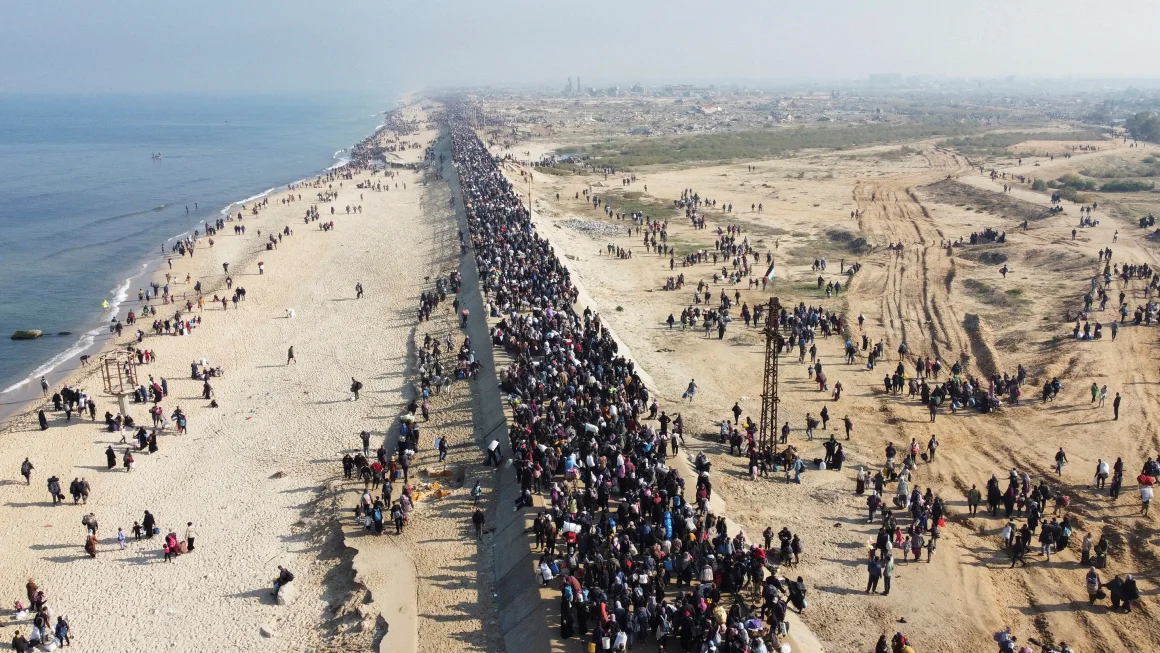
Arab nations reject Trump’s call to relocate Gazans to neighboring countries
A key group of Arab nations have said they “firmly” reject any efforts to resettle or evict Palestinians from Gaza, after US President Donald Trump said he wanted to “clean out” the enclave and move its population to neighboring countries.
The foreign ministers of Jordan, the United Arab Emirates, Saudi Arabia, Qatar and Egypt issued a wide-ranging statement Saturday, saying they hoped to work with Trump on a two-state solution in the Middle East.
But they pushed back on Trump’s suggestion to relocate Palestinians from Gaza. Without specifically referencing the president’s proposal, the ministers reiterated a commitment to rebuilding the enclave while ensuring “the continued presence of Palestinians in their homeland.”
The nations “firmly rejected any actions that threaten these rights, including settlement expansion, forced evictions, home demolitions, land annexation, or the displacement of Palestinians through direct expulsion or coerced migration,” they wrote after a meeting of the foreign ministers in Cairo.
In January, Trump said he had spoken with the king of Jordan about potentially building housing elsewhere in the Middle East and moving more than 1 million Palestinians from Gaza to neighboring countries.
“I said to him that I’d love you to take on more, because I’m looking at the whole Gaza Strip right now and it’s a mess, it’s a real mess,” he told reporters aboard Air Force One. “You’re talking about a million and a half people, and we just clean out that whole thing.”
“I don’t know, something has to happen, but it’s literally a demolition site right now,” Trump said. “Almost everything’s demolished, and people are dying there, so I’d rather get involved with some of the Arab nations and build housing in a different location where I think they could maybe live in peace for a change.”
The statement from the Arab foreign ministers touched on a range of topics relating to Gaza’s reconstruction, as the fragile ceasefire between Hamas and Israel allows the region to assess the impact of a brutal 15-month conflict.
The group hailed “the important role played by the United States in facilitating the deal,” for which both Trump and his predecessor Joe Biden have sought credit.
They also “called for the full withdrawal of Israeli forces from Gaza and rejected any attempts to partition the Strip,” and pointed to the “indispensable role” of the United Nations Relief and Works Agency for Palestine Refugees or UNRWA, two days after Israel’s ban on the agency went into effect.
#News
Read More...
10 months ago
